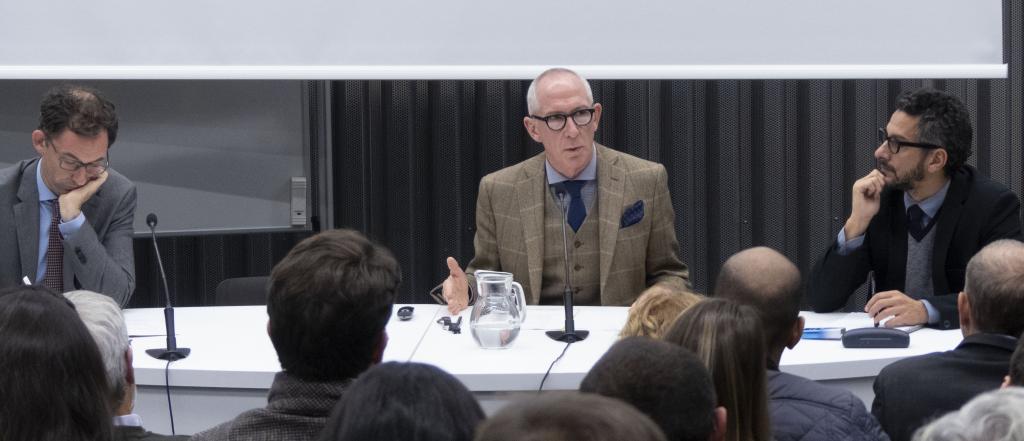Professor Adelman went over the last two centuries of Latin American history in dialogue with the audience and with Professors Davide Rodogno and Michael Goebel, both members of the Institute’s International History Department. Two main themes provided the thread for the discussion, namely the importance of the legacies of nineteenth century Republicanism, and the subsequent stories of continuities and change characteristic of a region that has underwent ebbs and flows of political experimentation shifting between democratic and authoritarian experiences.
Against this background, three issues stood out: a renewed pattern of urbanisation coupled with ever-increasing violence and a fluid political situation. These themes are all the more critical at a time of tangible creaky fragmentation of the Pink Tide: the progressive post-neoliberal left-wing turn experienced by several Latin American countries from the 1990s onwards. The recent election of Jair Bolsonaro in Brazil can easily be interpreted as a major blow in this direction. However, Professor Adelman concluded his lecture by leaving a glimpse of optimism, describing Bolsonaro as the head of a “mood” rather than a “movement”, a “simulacre of populism” which is unable to reinvent a new conception of citizenship. The election of Bolsonaro, noted Professor Adelman, was arguably produced by the crisis of the Workers’ Party rather than by the exhaustion of the previous regime itself.


